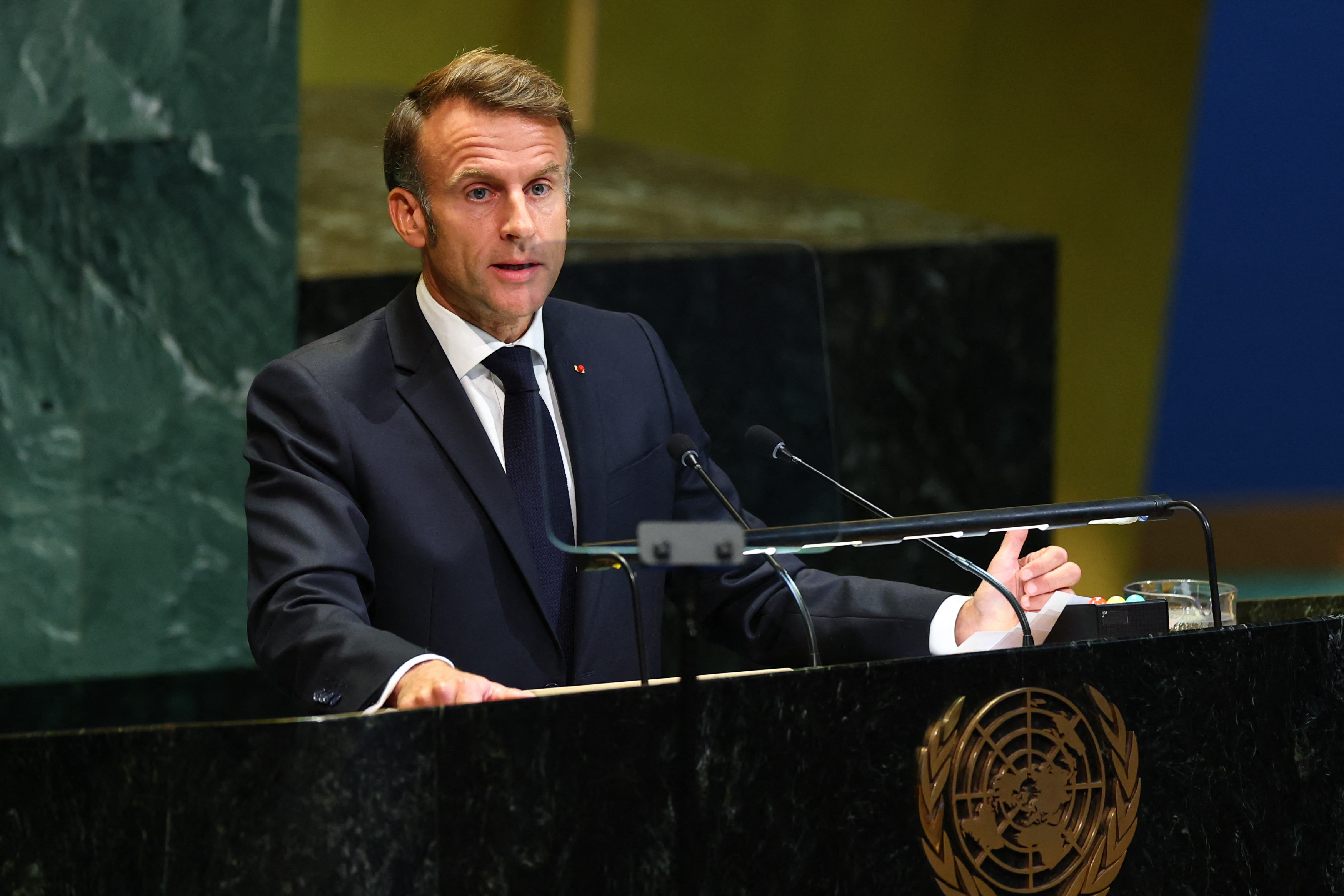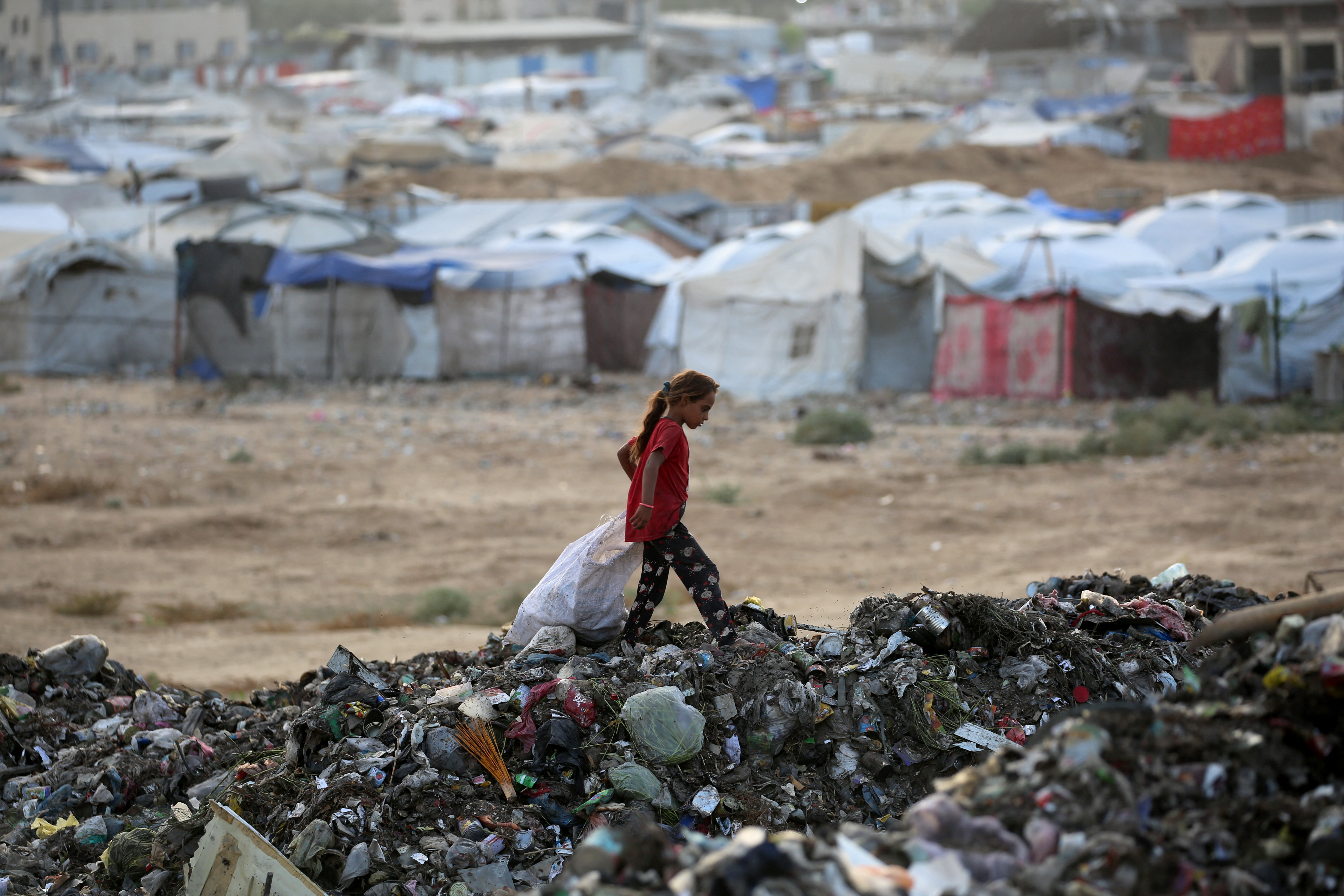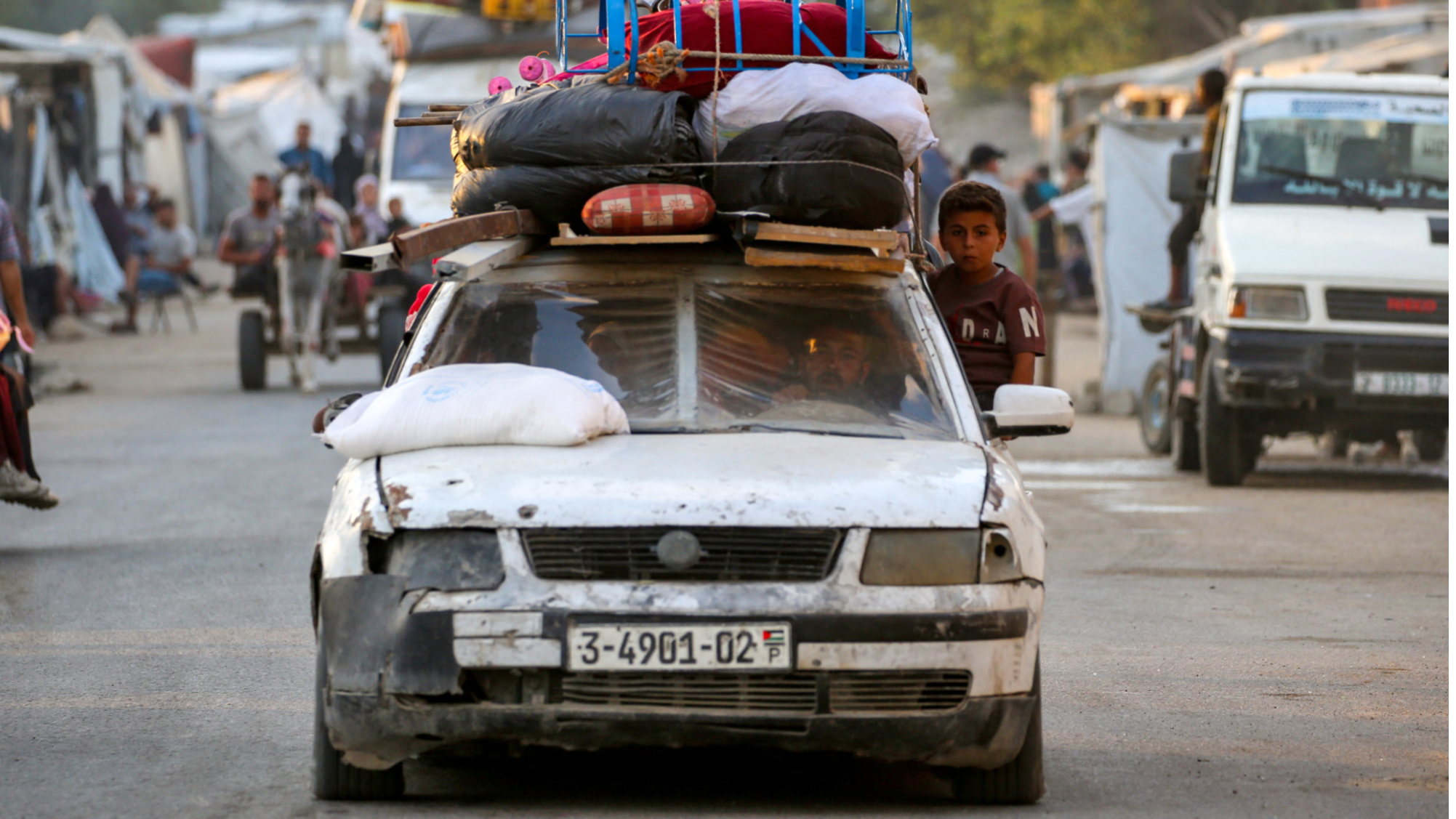
UNITED NATIONS/GAZA/MOSCOW - French President Emmanuel Macron said Monday at a UN meeting on the two-state solution that his country recognizes the State of Palestine, joining most of the other UN member states that have already done so.
"I declare today that France recognizes the State of Palestine," Macron said at the High-Level International Conference for the Peaceful Settlement of the Question of Palestine and the Implementation of the Two-State Solution, co-chaired by France and Saudi Arabia.
"The time has come. We can no longer wait," he said, adding that "we want two states in peace and security side by side."
With France's recognition, over 150 countries have announced their recognition of the State of Palestine.
On Sunday, Britain, Canada, Australia and Portugal formally recognized the State of Palestine to push for a "two-state solution," as Israel pressed ahead with its offensive and annexation in Gaza despite mounting global condemnation.
"The Israeli-Palestinian conflict has gone unresolved for generations," said UN Secretary-General Antonio Guterres in remarks at the meeting, held on the opening day of the UN General Assembly's High-level Week.
"Dialogue has faltered. Resolutions have been flouted. International law has been breached," he said.
The situation is intolerable, and it is deteriorating by the hour, said the UN chief.
"We are here today to help navigate the only way out of this nightmare: A two-state solution, where two independent, sovereign, democratic states -- Israel and Palestine -- live side-by-side in peace and security within their secure and recognized borders on the basis of pre-1967 lines, with Jerusalem as the capital of both states -- in line with international law, UN resolutions and other relevant agreements," said Guterres.
Annalena Baerbock, president of the 80th UN General Assembly session, said the General Assembly has been very clear: "We need an immediate, unconditional and permanent ceasefire in Gaza. Israel must immediately facilitate the full, rapid, safe and unhindered entry and delivery of humanitarian assistance to Palestinian civilians. Hamas must immediately and unconditionally release all hostages."
She emphasized that the decade-long Israeli-Palestinian conflict cannot be resolved by endless war, permanent occupation and recurrent terror, and the only way to ensure that future generations of both Palestinians and Israelis can live in peace, security and dignity is the two-state solution.

Guarded hope
Palestinians have expressed guarded hope following a new wave of Western recognition of the State of Palestine as Israel presses ahead with its military offensive in Gaza.
On Sunday, Britain, Canada, Australia and Portugal formally recognized Palestinian statehood in what they described as an effort to revive prospects for a two-state solution.
The move has sparked strong opposition from Israel and marked a divergence from the United States, which has long opposed unilateral recognition of Palestinian statehood.
For many Palestinians, however, such developments raise a pressing question: Will international gestures translate into real change on the ground -- or remain largely symbolic?
In a displacement camp in al-Nuseirat refugee camp in the central Gaza Strip, Om Mohammed al-Sheikh, a 50-year-old mother of six, told Xinhua, "The whole world is talking about recognizing Palestine, but what does it mean to us Gazans as long as Israel is continuing its war against us?"
"We want the war to stop, for our children to return to school, and for us to find medicine for the sick. A state on paper is not enough if our reality on the ground does not change," she said.
Yousef Abu Daya, 27, a metalworker from Gaza City, said his workshop -- his only source of income -- was destroyed early in the war. "We need real change that people can feel, not just political statements," he told Xinhua.
Across Gaza, such voices highlighted a gap between high-level diplomacy and the realities of displacement, shortages, and war.
Esmat Mansour, a Ramallah-based political analyst, described the international recognition as an "important gain" that reflects decades of Palestinian struggle and sacrifice, yet "these recognitions, by themselves, do not end the occupation or stop the war in Gaza."
"Recognition does not create a state on its own, but it adds political and moral weight," Mansour said. "The real battle is still on the ground. If we do not have a strong presence in the West Bank and Gaza, recognitions will remain largely symbolic."
Echoing the sentiment, Gaza-based political researcher Tayseer Abed told Xinhua that "Palestine is no longer isolated in international forums," and these recognitions also shift the dynamics of future negotiations.
Abed emphasized that Palestinians must seize this moment through internal unity and organized diplomatic efforts. "The world is opening a window for us, but crossing it depends on our ability to adhere to national priorities," he added.
Both experts stressed that Palestinian reconciliation is vital to translate symbolic gains into concrete progress.
Mansour argued that Israel views recognitions as a threat and seeks to downplay them through military pressure.
"If there is no internal consensus, these recognitions may become another point of contention rather than a source of strength," Mansour said.
Abed stressed that recognition also brings responsibilities. "The world expects to see Palestinian institutions capable of governing, not a divided authority split between Gaza and the West Bank," he said. "Reconciliation is no longer optional but a necessary condition for making use of this international momentum."

'Only feasible way'
Russia believes that a two-state solution between Israel and Palestine would end the fighting in the Middle East, Kremlin Spokesman Dmitry Peskov said on Monday when commenting on the recognition of Palestine by a number of Western countries.
"We remain committed to the fundamental resolutions of the UN Security Council and adhere to the international consensus on resolving the Palestinian-Israeli issue on the basis of a two-state solution," Peskov said.
He added that Moscow regards this solution as the "only feasible way" to resolve the current conflict, noting that "the current Palestinian-Israeli conflict is perhaps in the most acute and tragic phase of its entire history."
The Israeli military operation in the Gaza Strip since October 2023 has resulted in the deaths of over 65,200 people and injuries to more than 166,000 others.
On Sunday, Britain, Australia, Canada and Portugal announced their formal recognition of Palestine as a sovereign state


